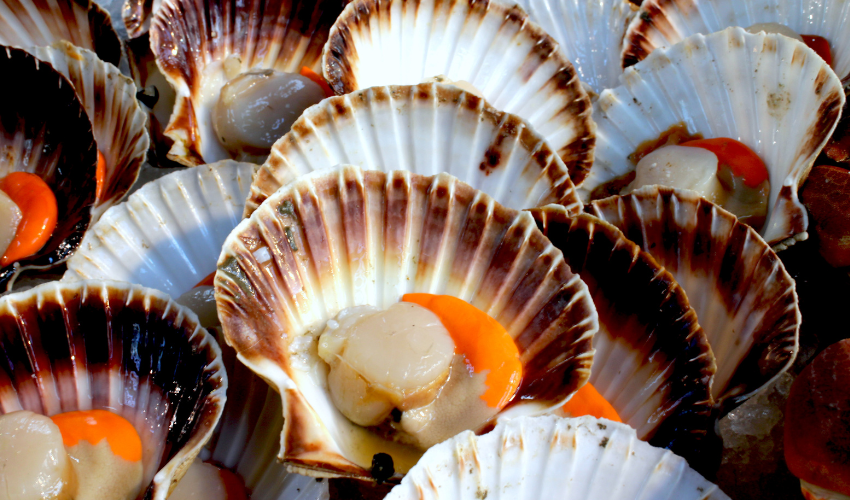Scallops are a popular seafood delicacy that are enjoyed around the world. Not only do they taste delicious, but they are also packed with nutrients that are essential for maintaining good health. But, are scallops healthy to eat? In this article, we’ll take a closer look at scallops and the various health benefits that they offer.
Nutritional Value of Scallops
Scallops are a nutrient-dense food that provides a range of vitamins and minerals that the body needs to function optimally. Here are some of the key nutrients that you’ll find in a serving of scallops:
Protein
Scallops are an excellent source of protein, with around 20 grams of protein per 100 grams of scallops. Protein is essential for building and repairing tissues in the body, and it also helps to keep you feeling full for longer.
Vitamins and Minerals
Scallops are a good source of several essential vitamins and minerals, including:
- Vitamin B12: essential for healthy nerve function and the production of red blood cells
- Vitamin E: an antioxidant that helps to protect cells from damage
- Iron: important for the production of red blood cells and the transport of oxygen around the body
- Magnesium: essential for healthy bone development and the regulation of muscle and nerve function
Health Benefits of Eating Scallops

Are scallops healthy to eat? Absolutely! Here are some of the health benefits that you can enjoy when you include scallops in your diet:
Heart Health
Scallops are low in saturated fat and high in omega-3 fatty acids, which can help to reduce inflammation and lower your risk of heart disease.
Brain Function
The high levels of vitamin B12 in scallops can help to improve brain function and reduce the risk of age-related cognitive decline.
Thyroid Health
Scallops are a good source of iodine, which is essential for healthy thyroid function. A healthy thyroid is important for maintaining a healthy metabolism.
Muscle Function
The magnesium in scallops can help to support healthy muscle function and reduce the risk of muscle cramps and spasms.

Frequently Asked Questions
- Are scallops high in cholesterol? A: Scallops are relatively low in cholesterol, with around 20-25 milligrams of cholesterol per 100 grams of scallops.
- How should I prepare scallops? A: Scallops can be grilled, sautéed, or broiled. They can also be used in stews and soups.
- Can I eat scallops if I have a shellfish allergy? A: No, if you have a shellfish allergy, you should avoid eating scallops.
- Are scallops sustainable seafood? A: Yes, scallops are a sustainable seafood choice. Look for scallops that are labeled as sustainably sourced.
- How often should I eat scallops? A: You can include scallops in your diet as often as you like, as long as they are consumed as part of a balanced diet.
Conclusion
Are scallops healthy to eat? The answer is a resounding yes!
Scallops are a nutrient-dense food that provide a range of health benefits. They are low in fat, high in protein, and packed with essential vitamins and minerals. So, the next time you’re looking for a delicious and healthy seafood option, consider adding scallops to your menu.
Not only are scallops delicious and healthy, but they are also incredibly versatile. They can be prepared in a variety of ways and can be used in a wide range of dishes. Whether you’re looking for a light and refreshing seafood salad or a hearty seafood stew, scallops are a great choice.
In addition to being a great source of nutrition, scallops are also a sustainable seafood choice. By choosing scallops that are sustainably sourced, you can enjoy all the health benefits that scallops have to offer while also supporting sustainable fishing practices.
Overall, if you’re looking for a healthy and delicious seafood option, scallops are a great choice. Whether you’re a seafood lover or just looking for a new food to add to your diet, be sure to give scallops a try. They are sure to impress your taste buds and provide you with a range of health benefits that your body will thank you for.






















